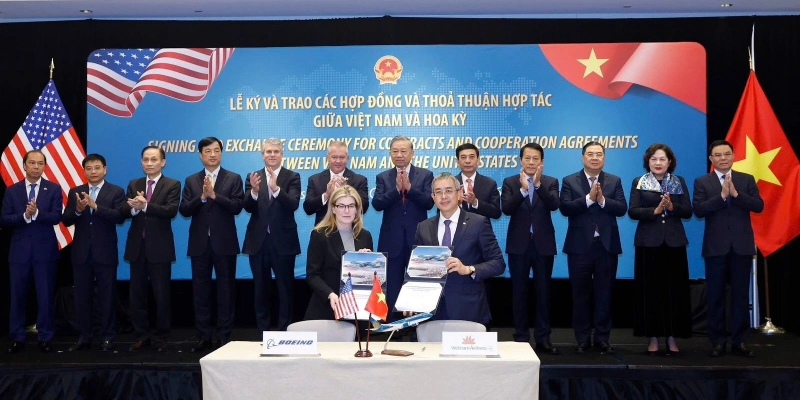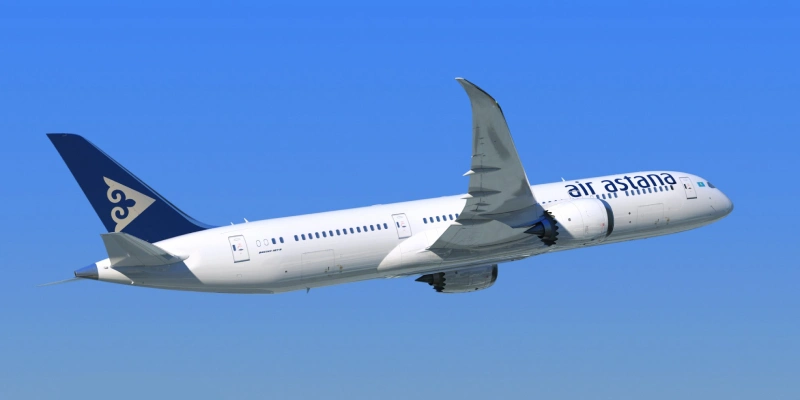Russia’s new MC-21 aircraft is facing a new setback after the first delivery will be delayed until 2025 or 2026, Rostec CEO Sergei Chemezov said.
This delay is primarily attributed to the impact of international sanctions on Russia’s aerospace sector, particularly following the country’s involvement in Ukraine.
Rostec, the state-owned conglomerate that holds a majority stake in the United Aircraft Corporation (UAC) and its subsidiary Yakovlev, is at the forefront of Russia’s efforts to develop a domestic aerospace industry capable of challenging Western giants like Airbus and Boeing.
Sanctions and Supply Chain Challenges
Since the onset of the conflict in Ukraine, Russia’s aerospace industry has been severely hampered by sanctions from the United States, European Union, and other Western countries. These sanctions have restricted access to crucial components and technology, significantly impacting the development and production of the MC-21.
→ New delay for Airbus A321XLR : to enter service in the third quarter of 2024
Initially celebrated for its innovative composite wing and reliance on foreign components such as Pratt & Whitney PW1400G engines, the MC-21 project has had to pivot towards domestic alternatives in light of these challenges. Recent sanctions have further isolated the Russian aerospace sector, emphasizing the urgent need for self-sufficiency in aircraft production.
Striving for Self-Sufficiency
In the wake of Western manufacturers exiting the Russian market, there has been a push towards developing and utilizing domestic resources for aircraft production. Rostec’s CEO highlighted the importance of delivering modern, comfortable, and domestically produced aircraft to Russian airlines, aiming to replace the vacuum left by Airbus and Boeing.
The goal is ambitious: by 2030, Russia plans to deliver over 500 domestically made aircraft to its airlines, including the MC-21, SSJ-NEW, and Tu-214 models.
This pivot towards self-reliance not only aims to sustain the Russian airline industry but also to assert Russia’s capability in the global aerospace arena.
Looking Ahead: Implications and Challenges
As Rostec and Yakovlev navigate through the complexities of sanctions and the quest for domestic production, the MC-21’s delayed debut symbolizes both a challenge and an opportunity for Russia’s aerospace sector.
The delay provides additional time to refine the aircraft’s design and ensure its safety and reliability, addressing any concerns arising from the transition to domestic components. However, the broader implications of these delays and the drive for self-sufficiency raise questions about the future competitiveness and innovation of Russia’s aerospace industry in a market dominated by established Western manufacturers.
As Russia forges ahead with its ambitious aerospace goals, the global aviation community watches closely, anticipating the impact of these developments on the industry’s geopolitical landscape.
With information from BNN
Related Topics
FAA and EASA Grant Initial Certification to Boeing 777-9 Simulators, Enabling Pre-Training Phase for Pilots
Vietnamese Airlines Sign Agreements for 90 Boeing Aircraft
Air Astana Finalizes Largest Order in Its History: Up to 15 Boeing 787 Jets
Boeing to Inaugurate Fourth 737 MAX Production Line in Everett by Mid-Year

Plataforma Informativa de Aviación Comercial con 13 años de trayectoria.




